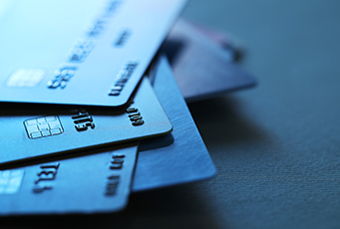Quite a few people have savings bonds that they purchased or received as a gift years ago. If you’re one of those people, you’ve probably wondered what they’re worth or what you can do with them now? If so, read on for answers to some of the most common questions others have asked us and you might also be pondering.
Q: How do I know how much my bonds are worth?
A: If you have paper bonds, you can calculate their value at: www.treasurydirect.gov/BC/SBCPrice.If you hold your bonds electronically, you can find out the value through the TreasuryDirect website. (You’ll need to establish an account and the value will be reflected under the “current holdings” tab.)
Q: Can you still buy EE bonds?
A: You can. However, they can only be purchased electronically through the TreasuryDirect website. These bonds are now sold at face value (i.e., $50 purchase price for a $50 bond). Paper bonds were sold for half of face value (i.e., $25 purchase price for a $50 bond).Q: How much interest will bonds earn?
A: If you were to buy a bond today, the current fixed rate is 0.10%. Interest is paid on the bond for 30 years. After that time you won’t earn any interest so it’s best to cash it in by or at year 30.Q: How do I redeem my bond?
A: You can redeem paper bonds at some banks, or you can mail them to: Treasury Retail Securities Site, PO Box 214, Minneapolis, MN 55480-0214.Electronic bonds can be sold via the TreasuryDirect website.
Q: Will I be penalized for redeeming my bond early?
A: You must wait 12 months before you can redeem your bond. If you redeem it within five years of purchase, you will forgo the last three years of interest. There are no penalties after the fifth year of ownership.Q: Do I have to pay taxes when I cash it in?
A: Yes. You will owe federal income tax on the bond’s interest. There is no tax at the state level.Q: Can I gift my bonds to my child/grandchild?
A: You can gift your bonds to whomever you wish. However, you will be required to pay federal income tax on the interest earned while under your ownership.Q: Are there any tax savings if I use my bond proceeds for higher education?
A: Yes. For bonds purchased after 1989, qualified taxpayers are not required to pay taxes on the interest when the bonds are redeemed and the proceeds are used to pay for higher education at a qualified institution. (There are some conditions that must be met to qualify for this tax exemption, and not all higher education expenses are appropriate. You can find additional information at: www.treasurydirect.gov/indiv/planning/plan_education.htm.)Recommended Articles
Worried About an AI Bubble? Three Strategies for Diversification
Ultimately, the appropriate strategy depends on the...
Private Equity and M&A in a Low-Rate World
Deal flow is the stream of business proposals, investment...





